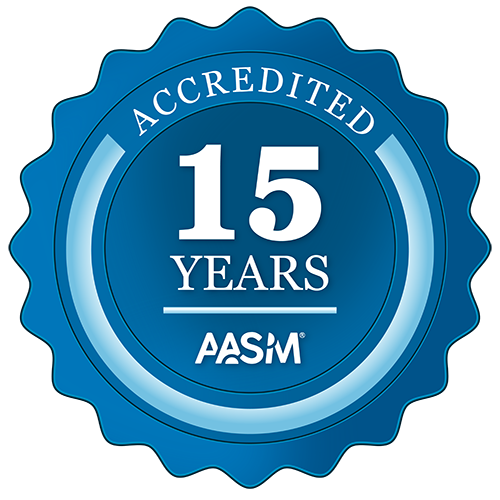
Accredited for 15 Years
Sleep Studies (In-Lab)
To fully understand sleep and to classify various problems associated with sleep, Reading Hospital’s Sleep Center can conduct an overnight sleep study. A sleep study is a non-invasive, overnight exam that allows sleep technologists to monitor you while you sleep to see what happens in your brain and body. For this test, you will come to the Reading Hospital Sleep Center. While you sleep, we monitor all your sleep stages during the night to identify disruptions in the pattern of your sleep. A sleep study will also measure eye movements, oxygen levels in your blood (through a sensor—there are no needles involved), heart and breathing rates, snoring, and body movements.
To schedule your sleep study, please call 484-628-8749 Monday through Friday between 7 a.m. and 4 p.m.
Home Sleep Tests
Your healthcare provider might provide you with simplified tests to be used at home to diagnose sleep apnea. These tests usually measure your heart rate, blood oxygen level, airflow, and breathing patterns. Your provider is more likely to recommend polysomnography in a sleep testing facility, rather than a home sleep test, if central sleep apnea is suspected.
Treatment for Sleep Apnea
Continuous positive airway pressure (CPAP)
If you have moderate to severe obstructive sleep apnea, you might benefit from using a machine that delivers air pressure through a mask while you sleep. With a CPAP machine, the air pressure is somewhat greater than that of the surrounding air and is just enough to keep your upper airway passages open, preventing apnea and snoring.
Implantable Device Testing
Our Sleep Center can test patients with implants for obstructive sleep apnea (unable to use or get consistent benefit from a CPAP machine) before and after their implant procedures.
